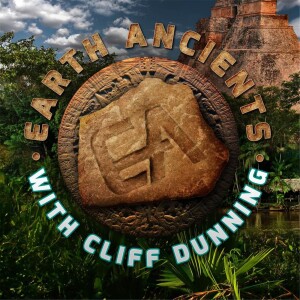
Destiny: Daniel Pinchbeck, 2012: The Return of Quetzalcoatl
 2021-10-13
2021-10-13
Download
Right click and do "save link as"
Cross James Merrill, H. P. Lovecraft, and Carlos Castaneda -each imbued with a twenty-first-century aptitude for quantum theory and existential psychology-and you get the voice of Daniel Pinchbeck. And yet, nothing quite prepares us for the lucidity, rationale, and informed audacity of this seeker, skeptic, and cartographer of hidden realms.
Throughout the 1990s, Pinchbeck had been a member of New York's literary select. He wrote for publications such as The New York Times Magazine, Esquire, and Harper's Bazaar. His first book, Breaking Open the Head, was heralded as the most significant on psychedelic experimentation since the work of Terence McKenna.
But slowly something happened: Rather than writing from a journalistic remove, Pinchbeck-his literary powers at their peak-began to participate in the shamanic and metaphysical belief systems he was encountering. As his psyche and body opened to new experience, disparate threads and occurrences made sense like never before: Humanity, every sign pointed, is precariously balanced between greater self-potential and environmental disaster. The Mayan calendar's "end date" of 2012 seems to define our present age: It heralds the end of one way of existence and the return of another, in which the serpent god Quetzalcoatl reigns anew, bringing with him an unimaginably ancient-yet, to us, wholly new-way of living.
A result not just of study but also of participation, 2012 tells the tale of a single man in whose trials we ultimately recognize our own hopes and anxieties about modern life.
Pinchbeck, journalist and author of the drug-riddled psychonaut investigation Breaking Open the Head, has set out to create an "extravagant thought experiment" centering around the Mayan prophecy that 2012 will bring about the end of the world as we know it, "the conclusion of a vast evolutionary cycle, and the potential gateway to a higher level of manifestation." More specifically, Pinchbeck's claim is that we are in the final stages of a fundamental global shift from a society based on materiality to one based on spirituality. Intermittently fascinating, especially in his autobiographical interludes, Pinchbeck tackles Stonehenge and the Burning Man festival, crop circles and globalization, modern hallucinogens and the ancient prophesy of the Plumed Serpent featured in his subtitle.
view more
Throughout the 1990s, Pinchbeck had been a member of New York's literary select. He wrote for publications such as The New York Times Magazine, Esquire, and Harper's Bazaar. His first book, Breaking Open the Head, was heralded as the most significant on psychedelic experimentation since the work of Terence McKenna.
But slowly something happened: Rather than writing from a journalistic remove, Pinchbeck-his literary powers at their peak-began to participate in the shamanic and metaphysical belief systems he was encountering. As his psyche and body opened to new experience, disparate threads and occurrences made sense like never before: Humanity, every sign pointed, is precariously balanced between greater self-potential and environmental disaster. The Mayan calendar's "end date" of 2012 seems to define our present age: It heralds the end of one way of existence and the return of another, in which the serpent god Quetzalcoatl reigns anew, bringing with him an unimaginably ancient-yet, to us, wholly new-way of living.
A result not just of study but also of participation, 2012 tells the tale of a single man in whose trials we ultimately recognize our own hopes and anxieties about modern life.
Pinchbeck, journalist and author of the drug-riddled psychonaut investigation Breaking Open the Head, has set out to create an "extravagant thought experiment" centering around the Mayan prophecy that 2012 will bring about the end of the world as we know it, "the conclusion of a vast evolutionary cycle, and the potential gateway to a higher level of manifestation." More specifically, Pinchbeck's claim is that we are in the final stages of a fundamental global shift from a society based on materiality to one based on spirituality. Intermittently fascinating, especially in his autobiographical interludes, Pinchbeck tackles Stonehenge and the Burning Man festival, crop circles and globalization, modern hallucinogens and the ancient prophesy of the Plumed Serpent featured in his subtitle.
More Episodes
Marco Vigato: Ancient Apocalypse, Mexico
 2022-12-24
2022-12-24
 2022-12-24
2022-12-24
Michael Cremo: Earth's Sacred Ancestry
 2022-12-17
2022-12-17
 2022-12-17
2022-12-17
Robert Schoch: The Solar-Induced Dark Age
 2022-12-10
2022-12-10
 2022-12-10
2022-12-10
Newman & Ainsworth: Secrets of Karahan Tepe
 2022-12-03
2022-12-03
 2022-12-03
2022-12-03
012345678910111213141516171819
Create your
podcast in
minutes
- Full-featured podcast site
- Unlimited storage and bandwidth
- Comprehensive podcast stats
- Distribute to Apple Podcasts, Spotify, and more
- Make money with your podcast
It is Free
- Privacy Policy
- Cookie Policy
- Terms of Use
- Consent Preferences
- Copyright © 2015-2024 Podbean.com


